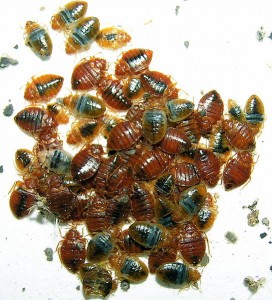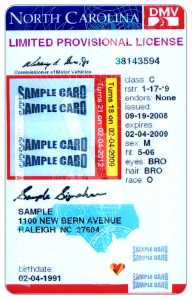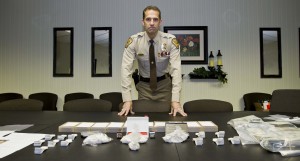Expunction of “Nonviolent Felonies”
April 25th, 2012 Effective December 1, 2011, Article 5 of Chapter 15A of the North Carolina General Statutes was amended by adding a new section, G.S. 15A-145.4, pursuant to which nonviolent felonies for first offenders who were under 18 years of age at the time of the commission of the crime can be expunged off their records as long as certain requirements are met.
Effective December 1, 2011, Article 5 of Chapter 15A of the North Carolina General Statutes was amended by adding a new section, G.S. 15A-145.4, pursuant to which nonviolent felonies for first offenders who were under 18 years of age at the time of the commission of the crime can be expunged off their records as long as certain requirements are met.
Generally, the fact that one was charged with a crime remains on their record regardless of the disposition of the charge, unless it gets expunged.
Expungement is a process by which criminal charges can be removed from ones official criminal record.
Regardless of ones age, cases in which the criminal charges were dismissed or a finding of not guilty was returned can be expunged pursuant to N.C.G.S. 15A-146. In this case, offenses can be either a misdemeanor, a felony, or an infraction under G.S. 18B-302(i). However, one must not have any previous convictions of any felonies or misdemeanors other than traffic violations.
First offenders not over the age of 21 at the time of the offense, can also pursue an expungement if:
1. They were charged with certain drug offenses which were dismissed based on a Deferred Prosecution Agreement pursuant to N.C.G.S. 90-96(a). (See N.C.G.S. 15A-145.2)
2. They were charged with certain toxic vapors offenses which were dismissed based on a Deferred Prosecution Agreement pursuant to N.C.G.S. 90-113.14(a) or (a1). (see N.C.G.S. 15A-145.3)
First offenders under the age of 18 at the time of the offense however can even get charges expunged of their record of which they were convicted. Until the amendment of the North Carolina expungement laws enacted by The General Assembly of North Carolina went in effect on December 1, 2011, the list of eligible convictions were exclusive of felony charges other than Class H felonies under Article 13A of Chapter 14 or enhanced charges under N.C.G.S. 14-50.22 (certain gang offenses). However, now one can even get “nonviolent felony” charges expunged. “Nonviolent Felony” means for purposes of this section any felony except the following:
1. A Class A through G felony.
2. A felony that includes assault as an essential element of the offense.
3. A felony that is an offense for which the convicted offender must register under Article 27A of Chapter 14 of the General Statutes.
4. A felony that is an offense that did not require registration under Article 27A of Chapter 14 of the General Statutes at the time of the commission of the offense but does require registration on the date the petition to expunge the offense would be filed.
5. A felony charged for any of the following sex-related or stalking offenses: G.S. 14-27.7A(b), 14-190.6, 14-190.7, 14-190.8, 14-202, 14-208.11A, 14-208.18, 14-277.3A, 14-321.1.
6. Any felony offense charged pursuant to Chapter 90 of the General Statutes where the offense involves methamphetamines, heroin, or possession with intent to sell or deliver or sell and deliver cocaine.
7. A felony offense charged pursuant to G.S. 14-12.12(b), 14-12.13, or 14-12.14, or any offense charged as a felony pursuant to G.S. 14-3(c).
8. A felony offense charged pursuant to G.S. 14-401.16.
9. A felony offense in which a commercial motor vehicle was used in the commission of the offense.
If you feel you may be eligible to pursue an expungement in New Hanover, Pender, or Brunswick Counties, North Carolina, call Collins Law Firm for a consultation at (910) 793-9000.
By Jana Collins, Office Manager



 The New Hanover County Courthouse located in Wilmington, NC is closed today, Thursday March 8, 2012, because of an infestation of bed bugs! Courthouse personnel said they noticed some bed bugs in the building and notified the New Hanover County division of Property Management.
The New Hanover County Courthouse located in Wilmington, NC is closed today, Thursday March 8, 2012, because of an infestation of bed bugs! Courthouse personnel said they noticed some bed bugs in the building and notified the New Hanover County division of Property Management.



